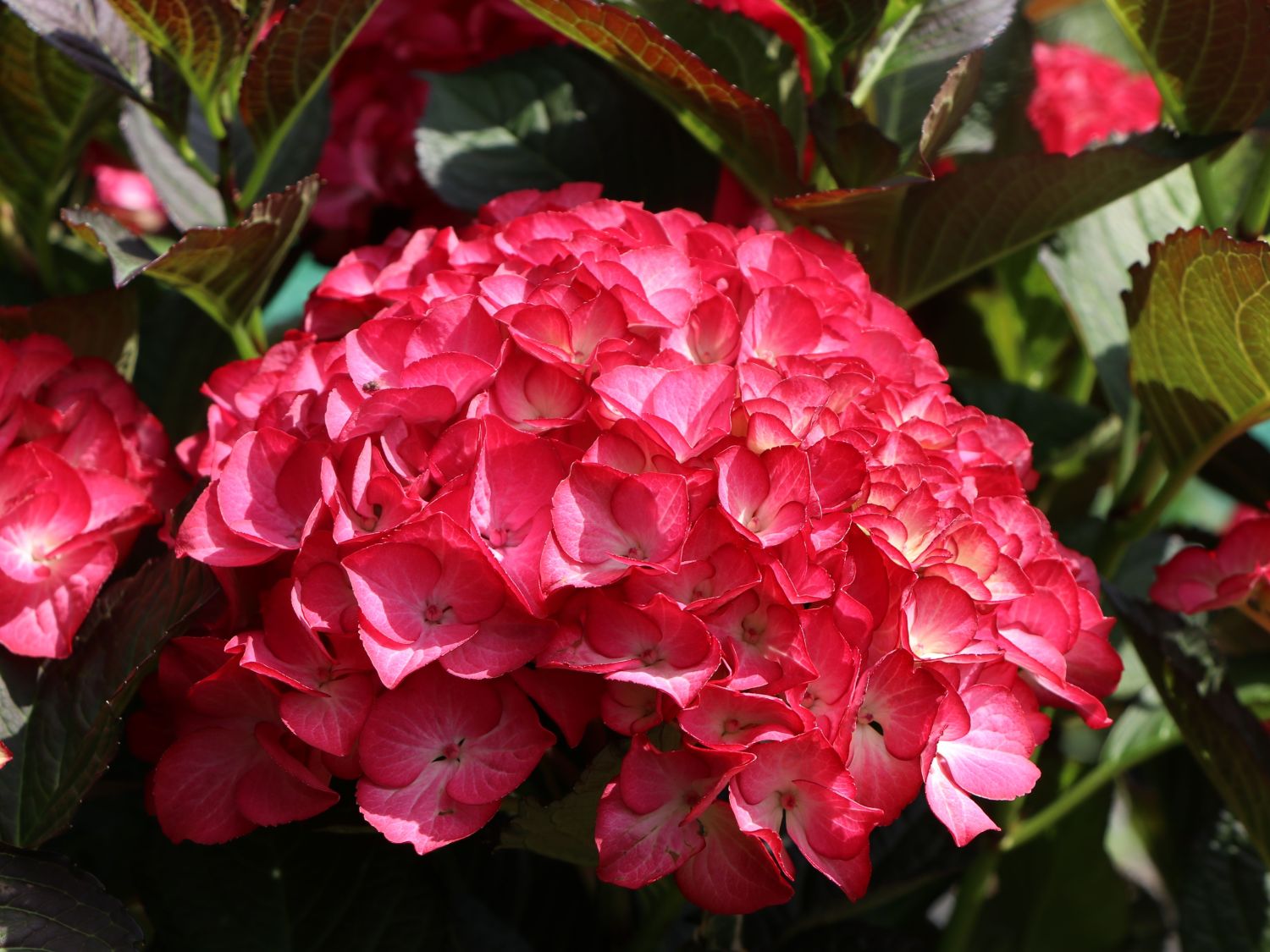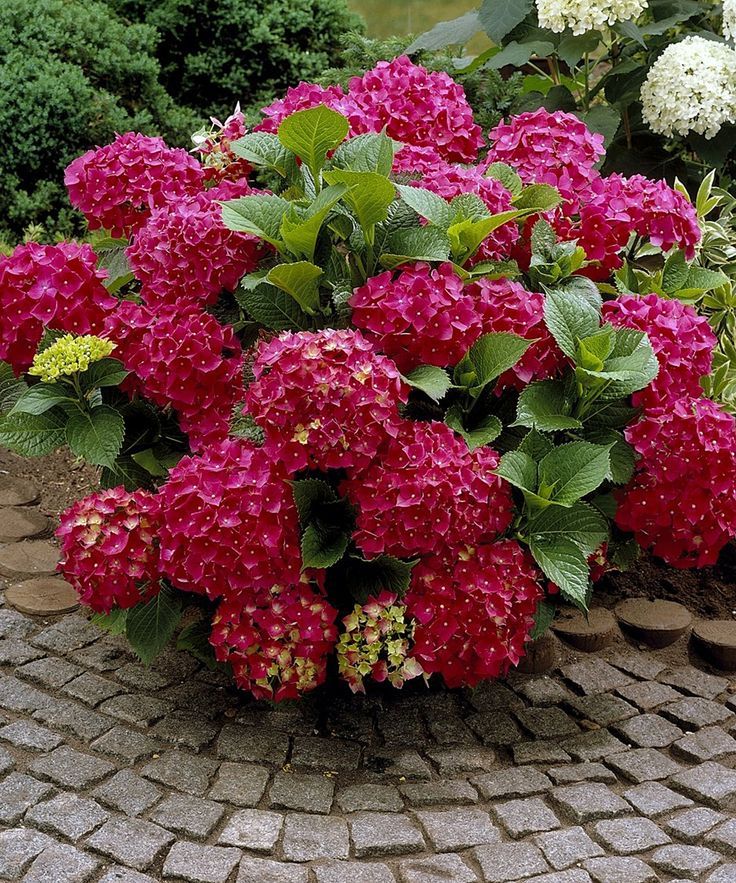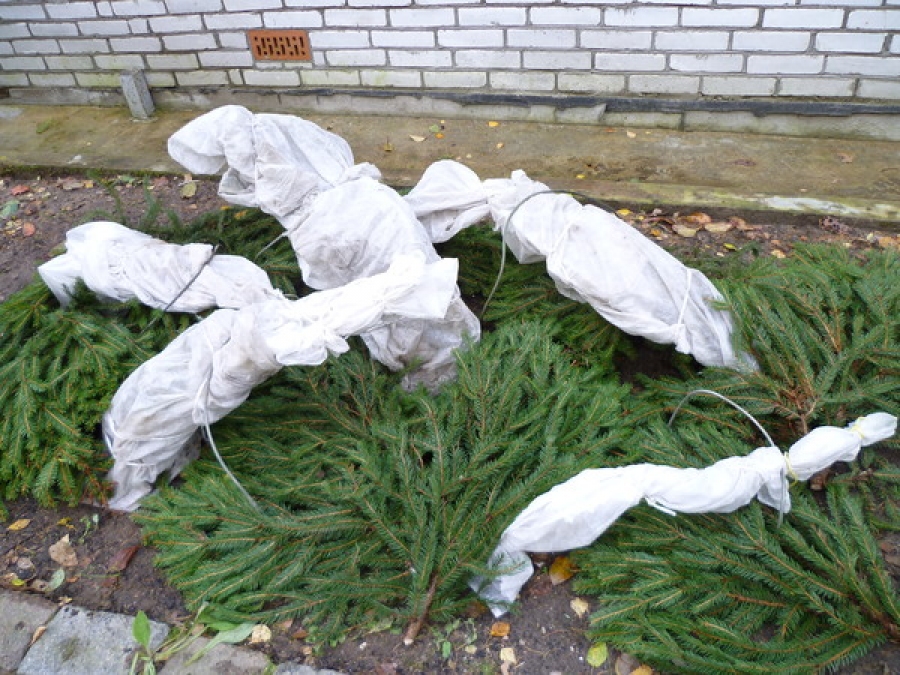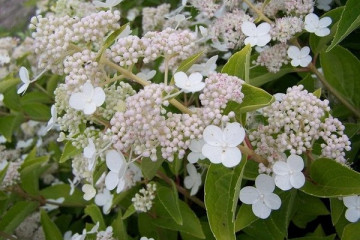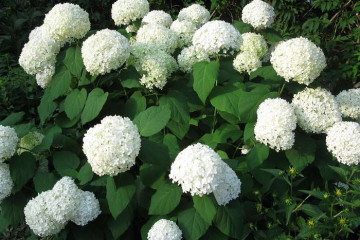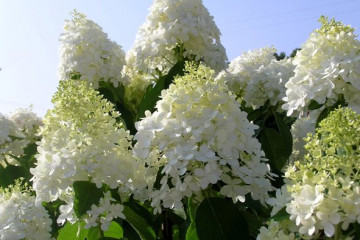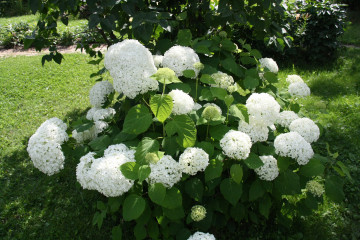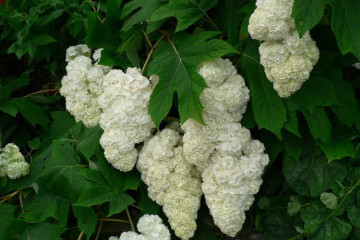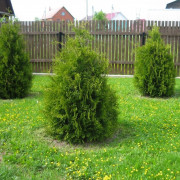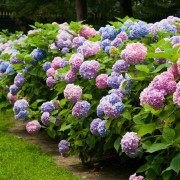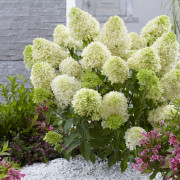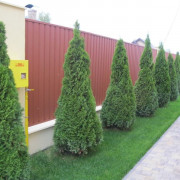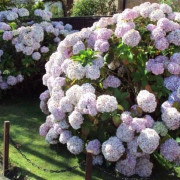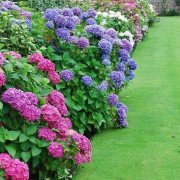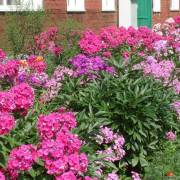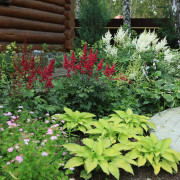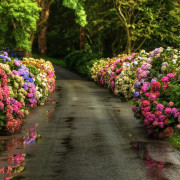Hydrangea Red Angel - description, planting and care
Content:
Hydrangea is one of the most popular plants used for landscaping. The shrub is unpretentious to care for, grows quickly and looks very beautiful.
Description of the Red Angel hydrangea variety and its characteristics
Before planting a large-leaved Red Angel hydrangea seedling, you need to study all the characteristics of the plant and the features of its cultivation.
Features of the variety
Large-leaved hydrangea (lat.hydrangea macrophylla) is a shrub that has a compact and dense crown. In height, it grows up to 1 m. When grown in pots, it does not exceed 60 cm. The foliage is large, dark green in color. Flowers of a beautiful, rich purple-crimson tone. They are collected in lush rounded inflorescences.
The flowering period of the culture falls on June - July. Inflorescences appear on last year's shoots.
Winter hardiness
The frost resistance of the flower is average. When grown in regions with cold winters, the shrub needs to be covered and wrapped around the crown.
Planting and further care
When growing a flower, you must follow some rules.
Site selection and preparation
Hydrangea Red Angel prefers to grow in open, sunny areas, but not in direct sunlight. The place must be protected from drafts.
How to plant
The procedure for planting hydrangea varieties Red Angel:
- Dig a hole (the size depends on how much the root system has grown at the time of planting).
- Pour expanded clay or crushed brick at the bottom of the hole.
- Place the seedling and bury it.
- Tamp the soil lightly around the trunk.
- At the end of planting, you need to sprinkle the soil near the seedling with wood ash and water it abundantly with warm water.
Watering and feeding
Water the hydrangea as needed. The plant loves moisture, but it is not advisable to overmoisten the soil. Warm water is used for irrigation.
Hydrangea Red Angel loves feeding. You can use special long-acting fertilizers. Effective remedies - Fertika, Pocon.
Pruning
For a large-leaved hydrangea to look decorative, it needs to form a crown. Thin young twigs and old dried ones are cut off. Two- and three-year-old branches are not cut off, as inflorescences are formed on them.
Preparing for winter
Before the onset of winter, the soil around the trunk is mulched, and the shrub itself is covered with a special agrofiber. The twigs need to be carefully tied together, and then wrapped with agrofiber.
Reproduction
The most common breeding method is by cuttings. They are cut from annual shoots at the end of summer. Ready cuttings before planting are dipped for 1 hour in Kornevin, and then planted in the substrate. With this method, the cuttings take root quite quickly. They can be planted in open ground after a year in the spring.
Diseases and pests, ways to deal with them
With the right growing conditions, pests and diseases will not have to be dealt with. But if they have already appeared, an urgent need to start the fight. Spraying with insecticides helps from pests.Diseases are fought with fungicides.
Use in landscape design
Hydrangeas look harmonious both when planted alone and with other shrubs. The shrub is used to create a hedge.
The hydrangea variety Red Angel looks very beautiful on the site due to the noble shade of the inflorescences. This variety is unpretentious to care for and always gives abundant flowering.
